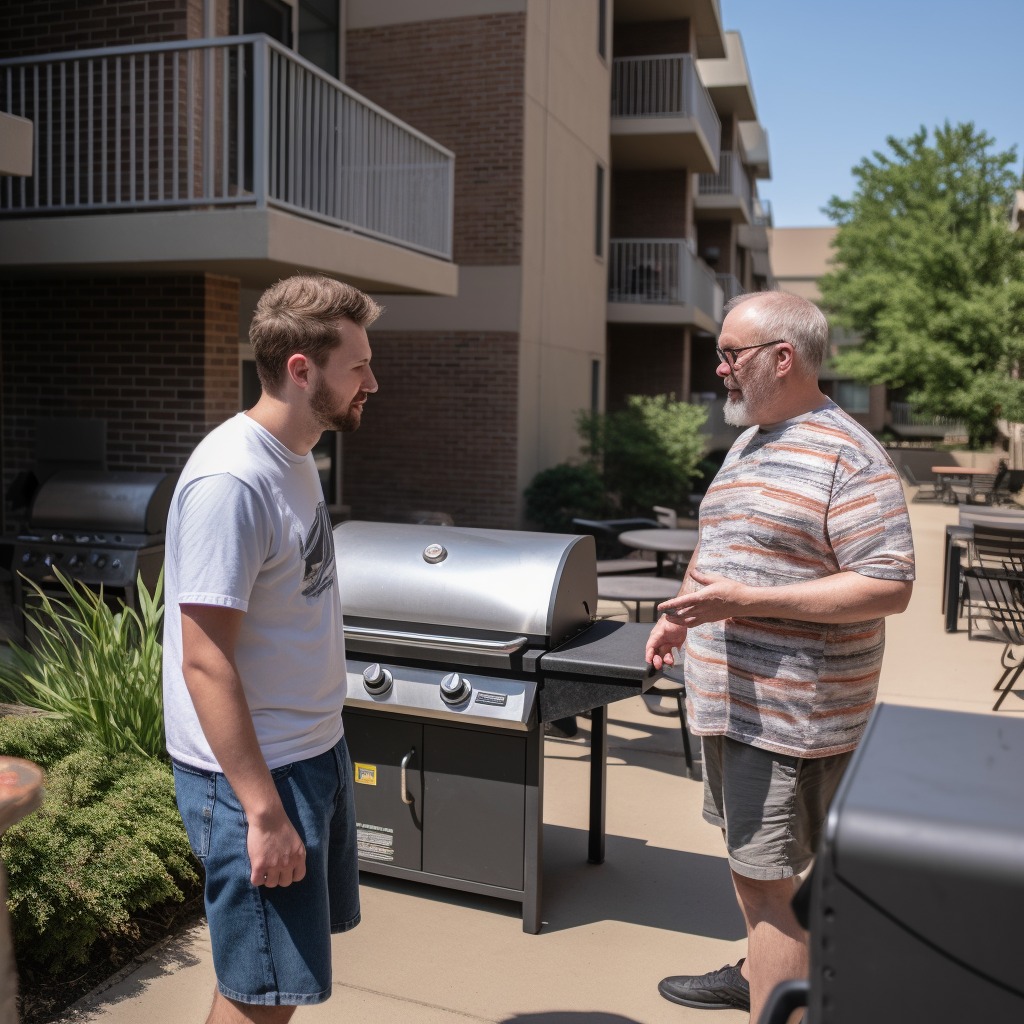
How to Deal with Noisy Neighbors in Your Apartment Building
Living in an apartment building has its perks, but it can also come with some challenges. One of the most common issues that tenants face is dealing with noisy neighbors. Whether it’s loud music, stomping footsteps, or shouting matches, noisy neighbors can be disruptive to your peace and quiet. Here are some tips on how to deal with noisy neighbors in your apartment building

Check if your expectations are realistic
The first step in dealing with noisy neighbors is to make sure your expectations are realistic. While you have the right to a peaceful living environment, it’s important to remember that apartment living comes with some degree of noise. If you’re expecting complete silence at all times, you may need to adjust your expectations. Note the time of day when you are hearing noises and try to identify if the noise is truly excessive.
Block them out
If your neighbors aren’t being excessively noisy but it’s still bothering you, you can try to block out their noise. Using a sound machine can help you to focus and block out stray sounds coming from nearby apartments. You may also find it helps to turn your TV on, play some music, a podcast, or an audiobook. Or, try sound-blocking ear plugs. Find what works for you.

Try a casual chat
If you feel comfortable, it can be helpful to introduce yourself to your neighbors and make some small talk to come across as friendly. Then, raise your concern about the noise level. Most people will respond positively if you simply ask them to turn their radio down a bit (or whatever the problem may be), as long as you come across respectful and friendly. Nobody wants to feel like they are being accused, attacked, or feeling like they are “in trouble”. It can also help if you express a sentiment like “I want to make sure me and my family aren’t causing problems for you either, so please let us know if we’re ever too loud or doing anything that is a problem for you!”.
Report to the property manager or landlord
If the initial discussion didn’t go well, you can report the loud behavior to the property manager or landlord. Check your lease to see if there are any rules or requirements related to sound levels. Some apartments have policies such as a 9pm to 7am low-noise level expectation that you can specifically report if broken. If there is no stated rule, it’s still generally understood that excessive noise during typical sleeping hours is considered rude and it usually can be reported. Remember to keep a noise log, including the date, time, and duration of the noise, as well as what type of noise it is and how it affected you.
Understand your rights and the law
It’s important to know your legal rights as a tenant and what the law says about noise levels in residential areas. Check your lease agreement and local noise ordinances to understand what is considered excessive noise and what actions you can take. If the noise is excessive and is late in the evening, they might be breaking the law in which case it could be reported to the police if necessary.
Join forces with other neighbors
If you’re not the only one experiencing noise disturbances, consider joining forces with other affected neighbors to approach the landlord or property manager together. This can increase the likelihood of the issue being addressed, and can also help to show that the problem is not isolated to one particular unit.
Consider soundproofing your unit
If the noise is particularly bothersome and you don’t want to rely on your neighbors to reduce their volume, you may want to consider soundproofing your unit. This can include adding soundproof curtains, sealing gaps around windows and doors, and using acoustic panels or foam.
Be patient and persistent
Dealing with noisy neighbors can be frustrating and stressful, but it’s important to remain patient and persistent in finding a solution. Don’t be afraid to follow up with your landlord or property manager if the issue persists, and continue to document any noise disturbances

Leave a Comment